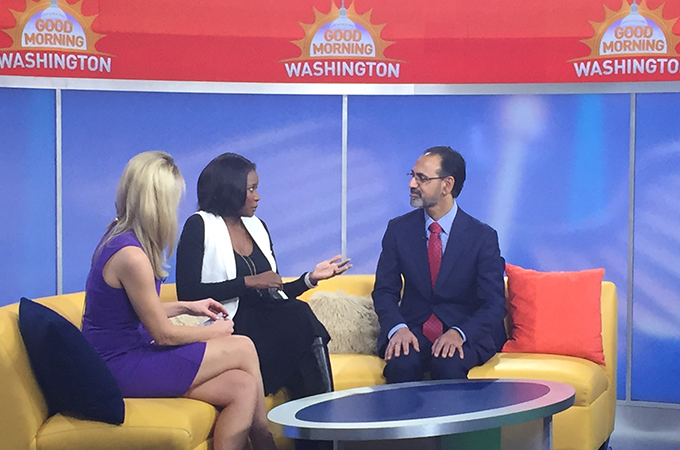Supermodel Chrissy Teigan has made headlines recently when she discussed her fertility struggles publicly on her talk show ‘FABLife.’ She just recently announced that she and husband John Legend will be expecting their first child, a girl through IVF treatment in the fall. But what came as a surprise is that Teigan also shared that she was involved in selecting the gender of the embryo that was transferred. This news created quite a bit of backlash in the media with fans criticizing Teigan about her choice to select the gender.
Shedding light on the new technology behind gender selection
In light of Chrissy Teigan’s announcement, it poses the question of whether gender selection is the right use of medical technology. To shed some light on the subject, Good Morning Washington reached out to reproductive endocrinologist, Dr. Naveed Khan, of Shady Grove Fertility’s Leesburg, VA, office to discuss gender selection and what Shady Grove Fertility’s philosophy is on this controversial topic. At Shady Grove Fertility, we have historically not transferred embryos based on sex. “Being male or female is not a disease,” states Khan. The exception to this is if a couple has a medical or genetic disorder that would require gender selection in order to ensure a healthy embryo. Our mission at Shady Grove Fertility is to use the best and healthiest embryos for pregnancy to occur.”
The balance of innovative technology and genetic testing
Today’s technology is incredibly innovative and the possibilities seem to be endless through genetic testing, where it is possible to screen for every single chromosome of an embryo including the sex chromosome. “The technology is relatively new in how accurate it is now. As of a couple of years ago we could only screen for the 7 to 10 most common chromosomes, now we can screen for all 23 pairs including the sex chromosome,” says Khan.
What is pgd and pgs and how does it work?
At Shady Grove Fertility, we perform preimplantation genetic diagnosis (PGD) and preimplantation genetic screening (PGS). Your physician at Shady Grove Fertility will recommend genetic testing of your embryos—known as PGD—if you and your partner are known carriers for genetic disorders such as cystic fibrosis, fragile X syndrome, or myotonic muscular dystrophy.
Once the embryos are developed, an embryologist will biopsy a group of cells from each embryo. The biopsied cells are analyzed in a genetic testing laboratory to determine if they are affected with the genetic disorder for which you are a carrier. The embryos that come back “normal” are the ones that are transferred.
In addition to testing for genetic mutations (PGD), we also perform preimplantation genetic screening (PGS). PGS looks for abnormalities in chromosome number such as trisomy 21, which causes Down syndrome, and many others that are likely to result in implantation failure or miscarriage.
Thanks to the advanced technology and procedures such as PGD and PGS, patients now have the ability to prevent certain mutations that can affect their offspring by allowing the transfer of only genetically normal embryo(s) to the uterus. This technique has allowed thousands of couples to successfully carry to term and deliver healthy babies.
Editors Note: This post was originally published in March 2016 and has been updated for accuracy and comprehensiveness as of December 2016.
If you would like to learn more about PGS or PGD and would like to schedule an appointment, please speak with one of our New Patient Liaisons at 1-877-971-7755 or click to schedule an appointment.




